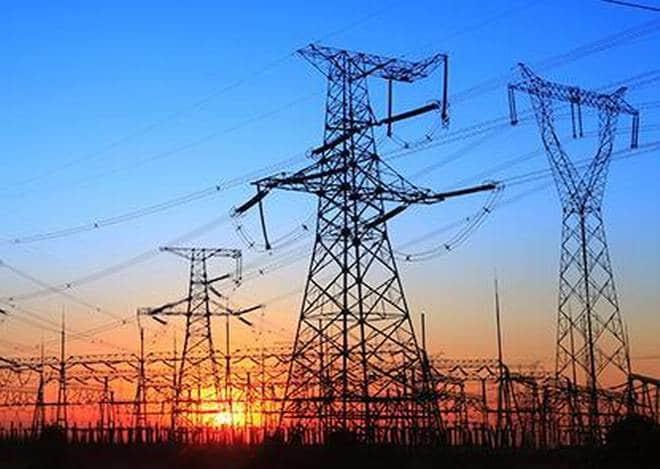#WorkersStrikeBack: Lakhs of Power Workers Go on Strike Against Electricity (Amendment) Bill

Image Courtesy: The Hindu
Nearly 25 lakh workers, employees and engineers from India’s power sector — across the sub-sectors of generation, transmission and distribution — went on strike on January 8 and 9, as part of the two-day nationwide workers’ strike called by 10 central trade unions and several independent federations of workers across industrial sectors.
Besides pressing for the 12-point charter of demands raised by the central trade unions, the power sector workers are fighting against the Modi government’s move to pass the Electricity (Amendment) Bill 2018 as well as other privatisation policies of the government, which seek to disenfranchise the poor and rural populations of their right to electricity.
The strike by the power workers was a success in most states of Northern, Eastern and Southern India, while it generated a medium response in states of the Western region, according to the statements issued on the both days by the Electricity Employees’ Federation of India (EEFI), which is affiliated to the Centre of Indian Trade Unions (CITU).
The strike had higher participation on the second day than the first, as more power workers took part in the states of Assam, Bihar, Odisha, Andhra Pradesh, Tamil Nadu, Kerala, Himachal Pradesh, Haryana, Punjab, West Bengal, Chhattisgarh, Telangana, Uttar Pradesh, Chandigarh UT, and Maharashtra. The EEFI congratulated the workers for their massive participation. The total number of employees and workers (regular and contractual) in the power sector is over 30 lakh.
Workers from two out of the three private power distribution companies in Delhi also participated in the strike, as EEFI general secretary Prasanta N Chowdhury told Newsclick, despite Delhi Lieutenant Governor (L-G) Anil Baijal invoking the Essential Services Maintenance Act (ESMA) on January 6 to prevent the workers from joining the strike.
The strike was coordinated by the National Coordination Committee of Electricity Employees and Engineers (NCCOEEE), a united platform of unions and federations of electricity employees and engineers.
The NCCOEEE has been actively organising and mobilising power sector workers across the country to fight against the Electricity (Amendment) Bill, 2018.
First introduced in 2014, the Bill seeks to amend the Electricity Act, 2003, and further divides the power industry that had already been trifurcated into generation, transmission and distribution by the 2003 Act — following the World Bank’s model of “unbundling” to aid privatisation.
The Bill seeks to bifurcate the distribution of electricity into carriage (the distribution infrastructure) and content (the sale of electricity to the consumer).
It proposes that the government lay down the wires that carry the electricity to the point of consumption, but private supply licensees compete over selling the electricity to consumers and make profits, that too without any investment. One of the supply licensees would be a government company, presumably to cater to the less profitable sections of consumers (such as poor rural households).
“The motive of bill is to separate the profit-making component like sale of electricity to industry, railways and commercial establishments for handing over to private sector. The loss-making parts like rural households and agriculture sector will remain with government companies,” said Shailendra Dubey, chairman of the All India Power Engineers’ Federation (AIPEF).
The amendment Bill is anti-people, as the private sector would compete over larger and more profitable consumers while the smaller and poorer consumers would be left to languish. The latest version of the Bill also calls for state-wise phasing out of subsidy and cross-subsidy within three years, according to Dubey.
“It may be added that due to preferential load guarantees given in power purchase agreements signed with private generators, public sector thermal plants are forced to back down their generation resulting in high generation cost and revenue loss. There is little focus on supply and service quality issues which are at the heart of consumers’ concerns,” Dubey said in a press statement.
He said employees would proceed to indefinite strike without notice in case the government tried to pass the Bill.
The power workers and engineers are also demanding re-integration of all unbundled power utilities in the form of State Electricity Boards (currently, only Kerala and Himachal have integrated electricity boards). The unbundling and other provisions of the 2003 Act allowed hordes of private companies to enter thermal power generation, which has also led to the current crisis in the power sector.
Their other demands include implementation of old pension scheme for all power
employees recruited after unbundling as well as regularisation of contractual workers, and equal wage for equal work until contract workers are regularised.
Get the latest reports & analysis with people's perspective on Protests, movements & deep analytical videos, discussions of the current affairs in your Telegram app. Subscribe to NewsClick's Telegram channel & get Real-Time updates on stories, as they get published on our website.























